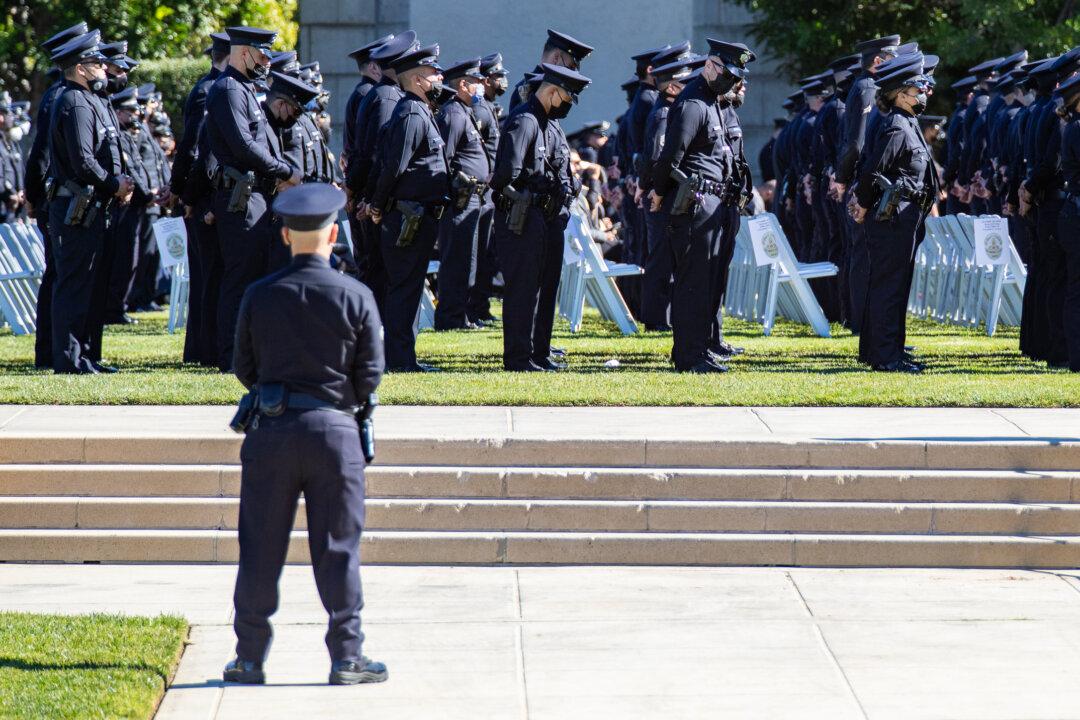SAN FERNANDO, Calif.—An ex-con was sentenced Nov. 27 to life in prison without the possibility of parole for the shooting death of a Los Angeles Police Department (LAPD) officer during a traffic stop in Lake View Terrace neighborhood more than 40 years ago.
Kenneth Earl Gay, 65, was convicted Aug. 25 of first-degree murder for the June 2, 1983, shooting death of Officer Paul Verna, a married father of two young sons who both eventually became police officers. Jurors also found true special-circumstance allegations of murder of a peace officer in the performance of his duties and murder to avoid or prevent a lawful arrest.





